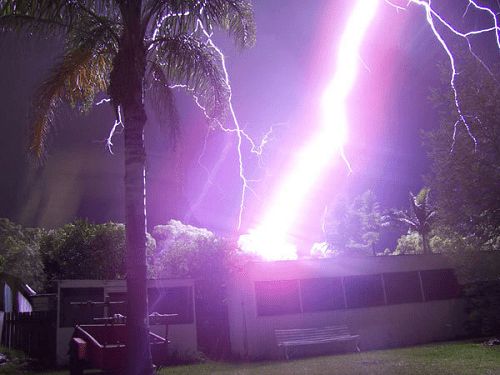 Thunderstorms, lightning and power outages do not have to equal false alarms.
Thunderstorms, lightning and power outages do not have to equal false alarms.
Download and Distribute the FARA Bulletin to educate your alarm users.
Thunderstorms, lightning and power outages do not have to equal false alarms.
Consider the following:
- Power surges and lightning strikes should not cause false alarms!
- False alarms caused by lightning strikes are controllable through the proper grounding of alarm systems and the use of power AND phone line surge suppressors.
- Use of surge suppressors greatly reduce false alarms by redirecting and dissipating electrical current
to the ground.
- Power outages or interruption of power should not cause false alarms!
In order to avoid costly false alarms that may occur during inclement weather, contact
your alarm dealer and follow these simple steps:
- Repair loose fitting doors and windows.
- Ensure that all alarm contacts are firmly in place.
- Use wide-gap door and window contacts.
- Use surge protectors/suppressors on both the alarm system and the phone line, if applicable, that sends the alarm signal to the monitoring center.
- Ensure that the battery back-up protection is in good working order, is fully charged and will hold that charge for a minimum of four hours.
- Ensure that your alarm system is properly grounded.
REMEMBER . . . Properly designed, installed and maintained alarm systems will not generate false alarm activity (AND FINES) due to power surges or power interruptions!
Taking the proper precautions will GREATLY reduce the chances your alarm system will be the cause of false alarms during a storm. However, in the case of a catastrophic lightning strike, the system may malfunction or suffer damage.
